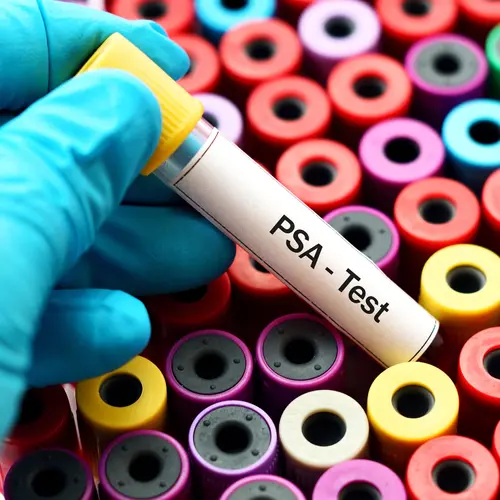Your risk for many health conditions may be written in your genes. That’s one reason doctors ask about your family’s medical history.
Researchers have known for quite some time that families can carry and pass on gene variants that raise your risk for cancers of the breast, ovaries, uterus, and colon, among others. More recently, they’ve discovered some of these same genes can raise a man’s risk for prostate cancer, too.
If you carry a gene that could be involved in the development of prostate cancer, that could change the treatment you get as well as your future health decisions. It could also mean that your parents, siblings, and children carry a gene that raises their cancer risk, too.
How Your Genes Can Raise Risk for Prostate Cancer
Researchers have found a handful of genes that, when they have certain changes in them (mutations), can play a role in prostate cancer risk.
These are the ones doctors know the most about:
BRCA1 and BRCA2. Normally these genes, called tumor suppressor genes, help prevent cancer. But inherited mutations can keep them from doing their job. Risk-raising mutations are more likely to cause breast and ovarian cancer. But in men, these changes -- especially changes in BRCA2 -- can lead to prostate cancer.
MSH2, MSH6, MLH1, and PMS2. When these genes work as they should, they help your cells fix problems that might otherwise lead to cancer. Inherited changes in any one of these genes causes Lynch syndrome. This inherited cancer syndrome raises your risk for colorectal, prostate, uterine, and other cancers.
CHEK2, ATM, PALB2, and RAD51D. These genes also help your cells fix themselves when things go wrong. Mutations in them can raise your risk for prostate cancer.
RNASEL. This gene helps cells die when something goes wrong in them. That way they don’t do too much damage in your body. When the gene doesn’t work right, because of an inherited mutation, abnormal cells could survive and become prostate cancer.
HOXB13. This gene plays a part in the development of your prostate gland. Rare mutations can raise risk for prostate cancers that happen at a young age, usually before age 55.
Research is in progress to find other gene changes that could raise risk for prostate cancer.
When You Should Get Genetic Testing for Prostate Cancer
Gene mutations don’t account for most cases of prostate cancer. Research shows that about 1-2 in 20 cases are in men with cancer-related mutations.
If you have prostate cancer, these signs can suggest that a gene mutation caused it:
Prostate cancer that hasn’t spread with a family history of certain cancers. Men whose prostate cancer is localized (is only in the prostate) and who have a family history of breast, colon, ovarian, pancreatic, or prostate cancer may have a gene mutation. Discuss your family history with your doctor to see if you need testing. Doctors may only recommend genetic testing if your cancer is more aggressive.
Metastatic prostate cancer. Research shows that about 1 in 8 men with prostate cancer that has spread past the prostate (metastatic cancer) have related gene mutations. Men in this group should have genetic testing.
If you don’t have prostate cancer, a strong family history of certain cancers could still suggest that certain risky gene mutations run in your family. Men with a strong family history of the following cancers might consider genetic testing:
- Prostate
- Breast
- Colon
- Ovarian
- Pancreatic
Your doctor or a genetic counselor can help decide whether your family history of cancer is strong enough for testing.
How Genetic Information Helps
If you have a genetic mutation that raises your risk for prostate cancer, knowing about it might help you in several ways. It could:
Change your treatment plan. A kind of cancer drug called a PARP inhibitor may help fight the type of cancer that genetic mutations can cause. These drugs block proteins in cancer cells that help the cells repair themselves and survive. Certain chemotherapy and immunotherapy drugs may also work better in people who have inherited prostate cancers.
Affect your diagnosis. Genetic mutations may lead to a more aggressive form of prostate cancer. If your doctor knows you have a mutation when you get your diagnosis, they might treat your cancer more aggressively from the beginning.
Increase your preventive screenings. If you don’t have prostate cancer, but have a gene mutation that raises your risk, your doctor might recommend that you start prostate cancer screenings earlier or have them more frequently than most men. Some prostate cancer-related mutations raise risk for other cancers, too. Doctors could recommend more frequent screenings for those cancers also.
Help your family. Parents pass cancer-related genetic mutations down to their children. If you have a mutation, one of your parents has it. Their siblings, your siblings, and your children could also have it. These family members might choose to have genetic testing as well. This information could help them prevent cancer, too.

